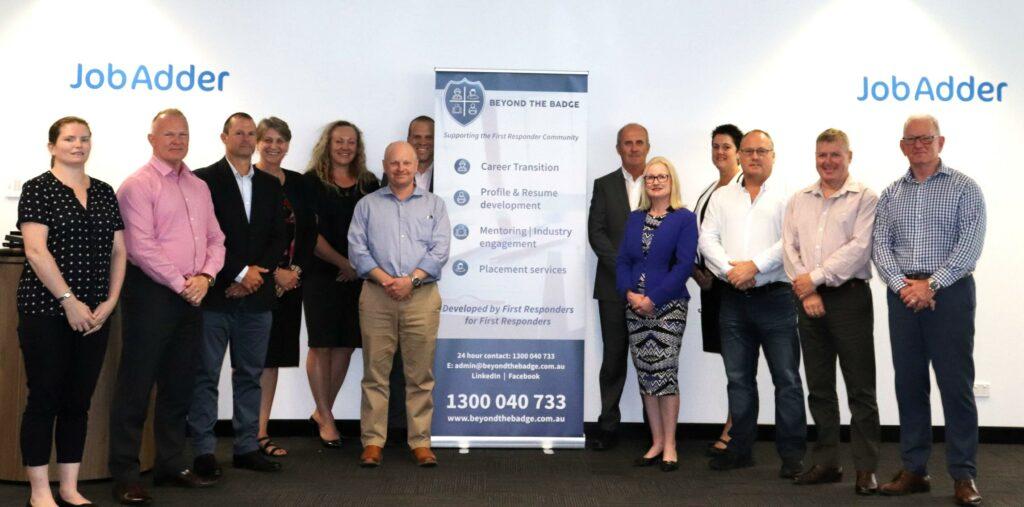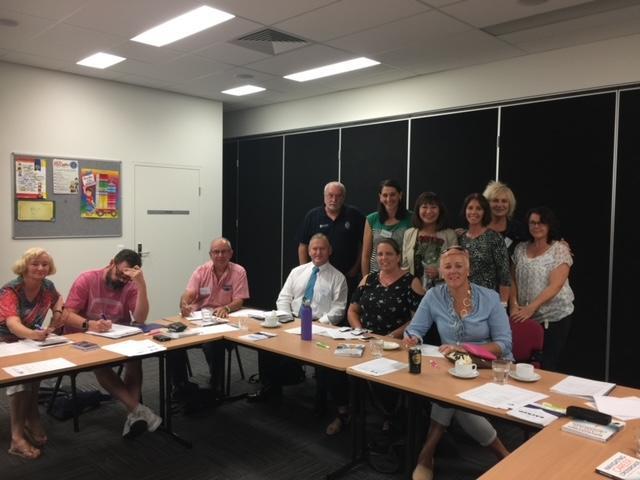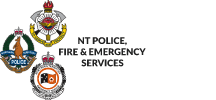Overview

Transitioning from a career in policing brings challenges which may impact both the officer and their family members. This is why it’s important to seek out support and services to assist with making the move to civilian life.
Working in vocations such as policing is often described as a calling and with this comes a unique lifestyle for those who serve. Transitioning from police work into the next phase of life may include aspects of mental and physical health that are best addressed at the time of transition.
From the moment you walk through the academy gates life begins to change as you assimilate into the demands and expectations of serving the community and upholding the oath of office. During your career you have many decisions made on your behalf such as rosters, meal breaks, annual leave and uniform requirements. When these decisions are no longer part of your routine it can take time to adjust.
There are also expectations of maintaining a long career where job satisfaction, transfers into specialist areas and promotions develop as a natural progression. However things don’t always work out the way we plan with injuries and disappointments with management or entitlements which negatively impact career progression.
Becoming part of the police family and feeling the pride of serving the community is why it’s so difficult to consider leaving whether it’s due to an injury, ill health, family commitments or to pursue a new career. Policing has it’s own unique culture and moving away from what you know brings with it a sense of loss and sometimes grief due to a loss of identity and questions regarding who am I now and what is my purpose. These issues need to be addressed as suppressing negative experiences and thoughts may lead to further distress.

The many friendships forged throughout your career is not only based on comradery but also through lived experience, some good and some traumatic. The bond created at stations and through working relationships can be missed when transitioning out. Maintaining friendships and staying connected is vitally important to moving on with your life and embracing the new.
Taking control and responsibility for the next phase post policing will assist with feeling empowered. It is now time to take the reins!
Tips for a positive transition:
- Speak to former police who have a lived experience of transition
- Seek support from family, colleagues and friends
- Build a network of like minded people and meet regularly
- Take a break to rest and replenish before moving into a new career
- Apply to your command for your SAP record or service history
- Make arrangements to be presented with your Service Record and outstanding Medals
- Find a counsellor who understands police culture and engage in career transition counselling
- Attend a residential trauma program to deal with unresolved trauma
- Become an associate member of your Police Union
- Join your local Retired and Former Police Association
- Stay in touch with Police Legacy
- Find a former police Facebook page or group to stay engaged with others
- Attend meetings and events to stay connected tot he Police Family
- Seek career confidence and transition services and consider new and exciting roles based on transferable skills
- Write a resume and apply for new roles
- Seek out charities and offer your time
- Exercise at least 4 times a week and follow a healthy eating plan
Step-By-Step
Seek support for unresolved trauma

* Find a counsellor who specialises in career transition, unresolved trauma and police culture
* Attend a residential trauma recovery program to begin your healing journey
* Attend a career transition course to understand your transferrable skills
* Write a resume
* Seek assistance with job applications via recruitment agencies
* Open a linkedin account and start networking
Content for transitioning and former officers
 17 Nov 2021
17 Nov 2021
Injured Workers Support
Injured workers support provides Australia wide information and resources to people injured in the workplace. Resources include, your rights, workers compensation handbooks, networks and support services, fact sheets and useful links.
 17 Nov 2021
17 Nov 2021
Jane Jackson Career Management Coach
Based in NSW and available nationally, Jane Jackson, career coach offers culturally sensitive career coaching to assist police transitioning from policing into new careers via face to face and online support and advice, programs, and resources.
 21 Oct 2021
21 Oct 2021
Lifeline Australia
Lifeline provides 24/7 telephone crises and suicide prevention support to people feeling isolated, worried, anxious or having a difficult time. Information and support is also available for friends or loved ones with concerns about how to talk to or support someone in crises or who might be at risk of self-harm. Chat and text services are also available between 12pm and 6am daily with downloadable resources available via their website.
 17 Nov 2021
17 Nov 2021
Man Therapy
Resources including videos on topics that effect men or those with a man in their life they are concerned about. Topics include, addictions, anxiety, depression, divorce, relationship and sex, teenage children’s issues, sleep, trauma, grief and anger. First responders are included in videos and resources.
 15 Nov 2022
15 Nov 2022
Meditation links
Meditation is a practice of quietening the mind, letting go of thoughts and feelings and a way of observing ourselves without judgement or fear. It allows our busy minds a space to relax and replenish while opening avenues to tap into our intuition, creativity and spirituality.
 17 Nov 2021
17 Nov 2021
Mensline Australia
Mensline Australia offers 24/7 counselling support via telephone and online to men across Australia. Resources and information is also available to enhance relationships, help with addictions, understanding anxiety, separation and divorce and dealing with general stress.
 27 Sep 2023
27 Sep 2023
Mentality Plus
Mentality plus is run by Craig Semple who is a former police officer with lived experience of PTSD and associated mental health conditions. He is fully accredited and culturally sensitive to police and provides mental health first aid training and programs to create mentally healthy and resilient workplaces, mental health motivational presentations, workplace health and wellbeing programs and mental health and resilience for students.
 17 Nov 2021
17 Nov 2021
Mind Health Connect
Mind Health Service Connect Line provides free telephone counselling and resources for people residing in the Hunter New England and Central Coast areas specifically covering mental and physical health as well as social support services.
 29 Jul 2022
29 Jul 2022
National Police Memorial
Established in 2001 the Memorial pays tribute to Australian Police Officers who have been killed on duty or have died as a result of their duties
 14 Nov 2022
14 Nov 2022
National State Police Insurance and Workers Compensation Providers
Serving police in each state pay into individual state insurance, workers compensation, superannuation and income protection schemes. Assistance during times of injury, Illness, death, or career transition are available by contacting your appropriate state provider.
 14 Nov 2022
14 Nov 2022
National State Police Retired Associations and Support Networks
Staying connected to the police family by joining your local retired and former police association may be helpful in maintaining social connection and positive mental health outcomes. Each state jurisdiction has a retired and former police association where regular monthly meetings and social events assist with staying in touch with former colleagues.
 03 Apr 2022
03 Apr 2022
New South Wales Police Force
Each individual state police jurisdictions will have mental health services for serving police which should include an Employee Assistance Program (EAP) along with other specific services. This may include EAP for transitioning police, former police up to 12 months and services for families. Career Transition services may also be included in some jurisdictions as moving into a new career after serving in the police force impacts mental health outcomes.
 03 Apr 2022
03 Apr 2022
Northern Territory Police Force
Each individual state police jurisdictions will have mental health services for serving police which should include an Employee Assistance Program (EAP) along with other specific services. This may include EAP for transitioning police, former police up to 12 months and services for families. Career Transition services may also be included in some jurisdictions as moving into a new career after serving in the police force impacts mental health outcomes.
 03 Apr 2022
03 Apr 2022
NSW Government Medicare mental health treatment plans
The first step to take when feeling overwhelmed or experiencing those niggling feelings of something isn’t quite right is to visit your GP. A general chat about your overall physical and mental health may indicate further investigation is warranted. This may include a series of tests to rule out physical issues and/or completing a mental health assessment. If your GP feels it would be helpful, you will be given a mental health plan and a referral to see a psychologist or psychiatrist.
 03 Apr 2022
03 Apr 2022
NSW Police Family Support Officers
Information and coordination of support services for family members of employees of the NSW police force who are injured or unwell. The Family Support Officers may assist with access to the employee assistance program, police chaplains, peer support, police association and police legacy programs, workers compensation information and referrals to appropriate support networks.
 10 Oct 2025
10 Oct 2025
Pendo
As a Sales Development Representative at Pendo, you will be responsible for generating new and high-quality pipeline for one of our sales territories. Using a comprehensive sales technology suite, you will engage daily in strategic research of the SaaS/Web Application space to determine the best companies and personas for engagement with Pendo’s product.
 21 Oct 2022
21 Oct 2022
Police Bank
The Police Bank is run by members for members and understands the unique requirements of police financial needs.

 Exit
Exit

